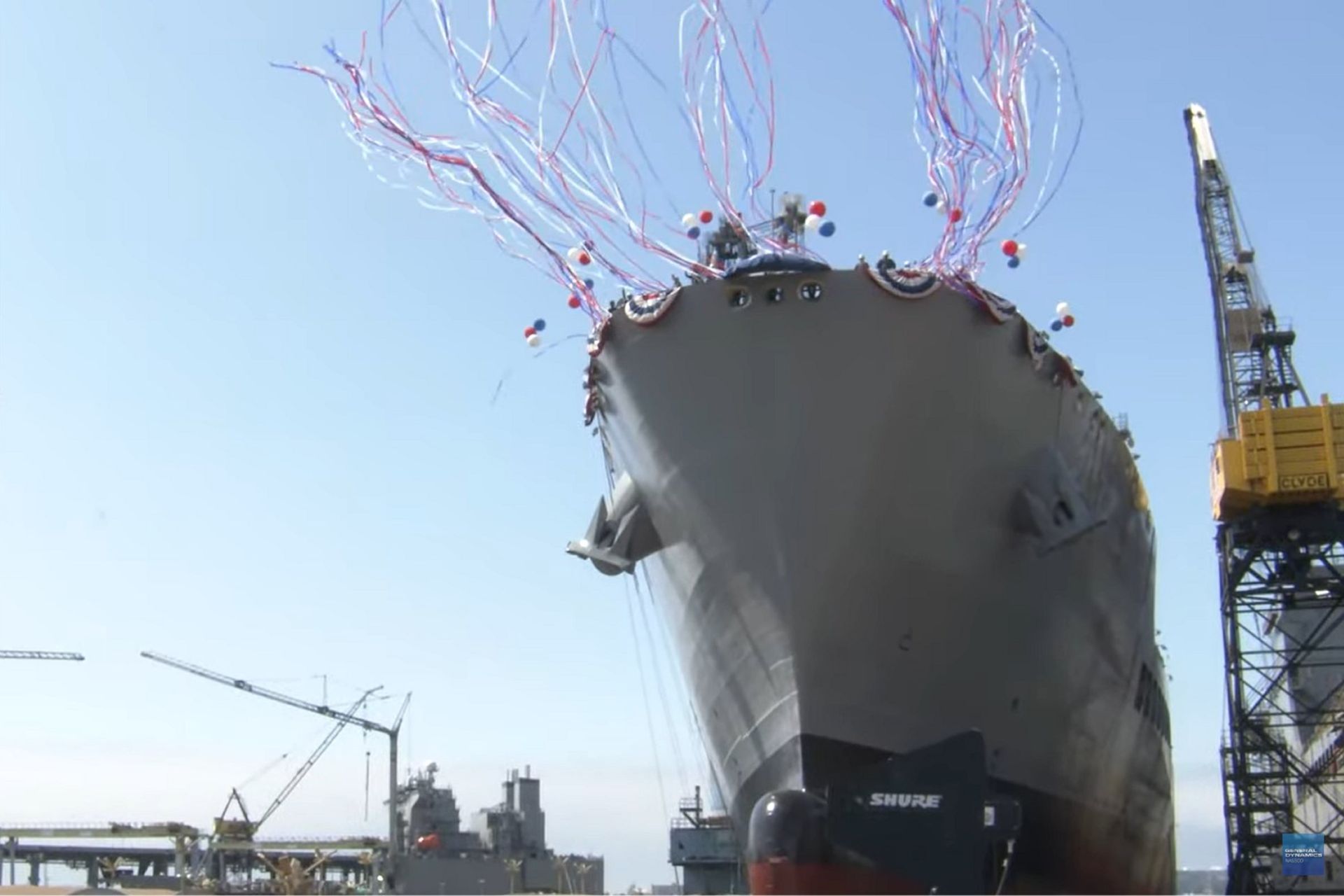Breaking News
US Navy christens USNS Lucy Stone newest Fleet replenishment oiler.
According to information published by the US DoD on September 20, 2024, the U.S. Navy christened the USNS Lucy Stone (T-AO 209) in a ceremony held in San Diego.
Follow Army Recognition on Google News at this link

Christening ceremony of the John Lewis-class replenishment oiler USNS Lucy Stone. (Picture source: US DoD)
These vessels are designed to supply fuel and provisions to ships during extended missions at sea, playing a key role in keeping naval strike groups and other assets operational over long distances and durations. Operated by the Military Sealift Command, the John Lewis-class can transfer a wide variety of materials during underway replenishments, including aviation fuel, diesel, fresh water, and dry cargo. They are equipped with five refueling stations and two dry cargo transfer rigs, enabling simultaneous replenishment of multiple ships.
Beyond their core logistical role, these ships are built with expanded features. They include space, weight, and power reservations for potential future installation of defensive systems, like the Phalanx CIWS or SeaRAM. The ships are designed to meet commercial standards, which facilitates lower production costs while maintaining the robustness required for military operations. Their aviation facilities allow for helicopter operations, enhancing logistical flexibility.
A key feature of the John Lewis-class is its focus on improved operational efficiency. Powered by medium-speed Fairbanks-Morse diesel engines, these ships can reach speeds up to 20 knots. With an operational range exceeding 6,000 nautical miles, they are suited for global missions. Their design reflects a focus on minimizing lifecycle costs and reducing the Navy’s logistical footprint.
The class is slated to include 20 ships, with contracts awarded for most of these already. Each vessel is estimated to cost around $650 million, though costs vary slightly based on production schedules and procurement rates.
Comments
The class incorporates advanced systems, such as the E-STREAM (Electronic-Standard Tensioned Replenishment Alongside Method), which improves the efficiency and safety of fuel and cargo transfers at sea. This technology increases transfer rates and reduces manpower needs, streamlining the logistics process.


























